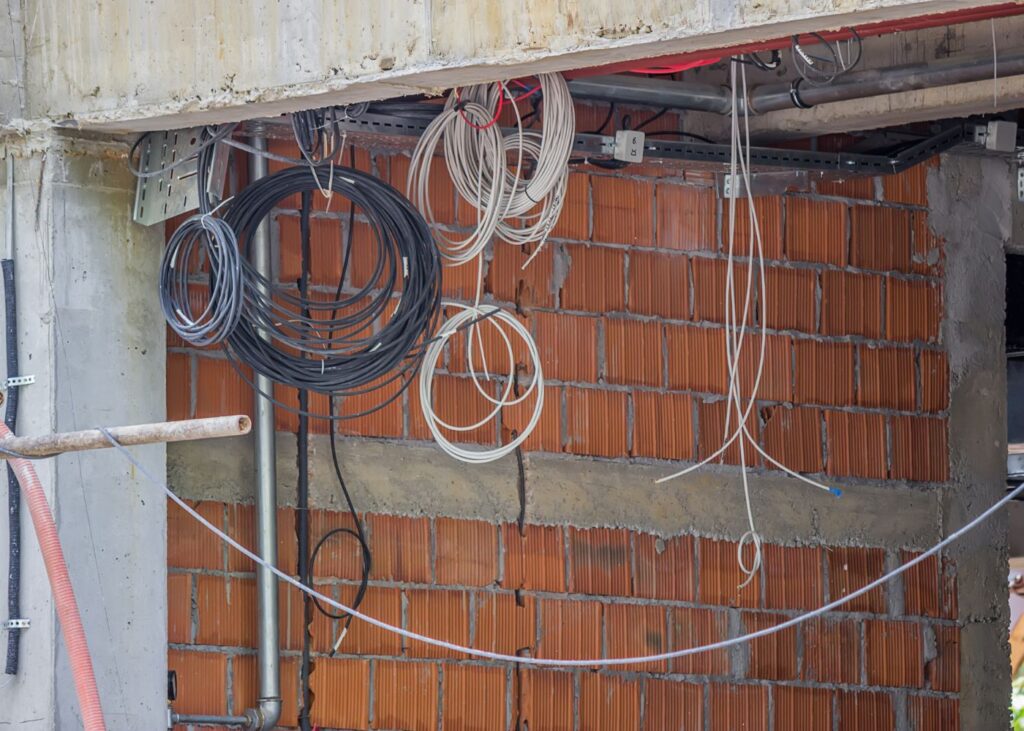
Ever wondered how you could enhance your home’s security without cluttering your space with obvious security equipment? Underground security cables could be the answer you’re looking for. These hidden gems provide top-notch security while maintaining your home’s aesthetic appeal.
Unobtrusive yet effective, underground security cables are a game-changer. They’re not just for high-security areas anymore. More and more homeowners like you are starting to see their benefits. From deterring potential intruders to providing a seamless security solution, they’re an investment that’s well worth considering.
So, let’s delve deeper into the world of underground security cables. We’ll uncover how they work, why they’re so effective, and most importantly, how they can help you secure your property like never before. Buckle up because we’re about to embark on an enlightening journey into the realm of advanced home security solutions.
Benefits of Underground Security Cables
With the surge in the residential security market, underground security cables have proven their worth among a plethora of home security solutions. Let’s unravel the tapestry of benefits these hidden security systems offer.
Increased Protection
The prominent reason that you’d want to consider underground security cables is the unmatched level of protection they bring. Since they’re hidden from plain sight, ‘out of sight, out of mind’ works in your favor. Intruders can’t disable what they can’t see, and these cables become your discreet, silent guard.
Imagine not having to worry about tampering or visible damage to your security systems! Other types of security methods are often targeted first in burglaries, but these underground systems defy that pattern. You’ve got the upper hand here, which increases your chances of warding off potential intruders.
Hard-wired security systems have a reputation for being reliable, and there’s a reason. Unlike their wireless counterparts, underground cables aren’t affected by outages or weather conditions. They’re your fortress, keeping you safe and secure around the clock.
Prevention of Theft
Prevention is always better than a cure. Couple that belief with the power of underground security cables and you’ve got a potent theft deterrent.
Prevention is key, and these cables provide a way to stop theft before it even occurs. Their presence, or more accurately, their absence, doesn’t alert burglars to the existence of your security system. This lack of knowledge can often be enough to protect your property.
Additionally, these systems enable you to effectively monitor your property. When linked with various sensors, an effective underground security system alerts you to any unanticipated activity. That minor edge, in turn, allows you to act swiftly and decisively, further boosting your chances of preventing theft before it happens.
Evidently, underground security cables are more than just a ‘good-to-have’ feature. They’re a necessity if you want to take your home security to the next level, providing an edge that is hard to beat. It’s clear how these hidden defense mechanisms have come to be the chosen security solution for many homeowners across the country. As we delve further in the next section, we’ll explore the workings behind these systems, enhancing our understanding of why they’re so effective in safeguarding your properties.
Types of Underground Security Cables
Venturing into the world of underground security systems, you’ll find various types of cables, each with its unique qualities. Understanding the distinction between these systems is vital for optimizing your home safety.
Fiber Optic Cables
These comprise thin strands of glass or plastic that transmit data via light pulses. Fiber Optic Cables are renowned for their incredible speed and bandwidth. This trait makes them ideal for transmitting video surveillance data or alarm signals over large distances with minimal loss of data fidelity. One core advantage of using fiber optic cables for your security needs is their immunity to electromagnetic interference, making signal disruptions a worry of the past. Additionally, they’re highly tamper-resistant. Any attempts of meddling with the system will cause signal loss, triggering an alarm.
Coaxial Cables
Coaxial cables deliver high-frequency electrical signals. They’ve gained considerable popularity for their ability to transmit data over extended stretches without signal degradation. Layered with an inner conductor, an insulating layer, a conducting shield, and an outer protective layer, they offer robust protection against electrical and environmental interferences. Coax has found extensive usage in residential security setups, especially ones reliant on CCTV systems.
Ethernet Cables
Ethernet Cables are the backbone of many home security networking systems. These cables hardwire your security devices—cameras, alarms, sensors— to your home network, offering a dedicated and reliable connection. In the realm of underground security cables, ethernet cables are revered for their dependable high-speed data transfer capabilities. While they may require additional protective sheathing for underground use, their ability to deliver uninterrupted service even in unfavorable conditions makes them a noteworthy option for homeowners.
Navigating through the different types of underground security cables helps in choosing one that matches your specific security requirements. A prudent selection can not only boost the performance of your security system but also render it resilient against common operational challenges.
Installation Process for Underground Security Cables
As you begin to consider the value and benefits attached to using underground security cables, you’ll likely need to navigate the installation process. This process is pretty straightforward and primarily involves three distinct stages.
Planning and Design
Start by getting your planning right. This is a critical stage that determines the success or failure of your cable installation. Poor planning can lead to ineffective cable coverage, reducing the effectiveness of your security system. In this step, it’s essential to identify the best location for cable installation based on the layout and design of your property. Begin with a survey of the proposed installation area, identifying key areas that require maximum coverage. Make a precise map outlining where each cable would run, keeping in mind to avoid obstructions like water lines, gas pipes, and other underground utilities.
Digging and Trenching
Once the planning’s sorted, start digging and trenching. The depth of the trenches will usually depend on the type of cable involved. Remember, trench depth plays a crucial role in ensuring the safety of your cables from various external factors like weather conditions and physical harm. Also, ensure that trench boundaries are clear, even, and free of debris. For your own safety, it would be wise to consider renting a trench digger or hiring the services of a trained professional to handle this process.
Cable Laying and Connecting
The final stage involves laying the cables in the trenches and connecting them to your security systems. Here, you should use underground-rated or direct burial cables. These cables are specially designed to resist the harsh conditions found below ground level. They’re waterproof, UV-resistant, and tough enough to withstand physical stresses. Place your cables carefully in the trenches, avoiding bends and loops which might cause damage. When connecting the cables to your security devices, ensure the system is turned off and configure each device according to the manufacturer’s instructions.
Your security system should now be a lot more robust with these underground security cables. Remember the importance of ongoing maintenance to enjoy an uninterrupted and optimal service from your installation. Regular inspections and updates make sure your system performs at its best at all times.
Maintenance Tips for Underground Security Cables
Maintaining your underground security cables is as crucial as expert installation. Through consistent maintenance checks, you can ensure that the cables continue to function optimally and extend their lifespan.
In figuring out how to do this, the most effective strategies boil down to these three critical areas:
Regular Inspections
Routinely check on your underground security cables. Diligent inspections can give you insight into any emerging issues before they escalate. Spotting concerns early makes it easier and less expensive to manage. You’re looking for any signs of degradation, such as fraying or cracking on the outer jacket of the cable.
Protection From External Forces
Take action to shield your cables from external forces. Though underground cables are designed to weather harsh conditions like rain or ice, certain factors still pose a threat. For instance, a small animal gnawing at a cable can cause serious damage. Simple measures such as installing deterrent devices or applying specialized protective coatings can help avert potential destruction.
Repair and Replacement
In the course of your regular inspections, you might discover a cable that’s damaged beyond repair. This is where your promptness to repair and replace compromised cables comes into play. Don’t procrastinate; make it a rule to repair or replace bad cables as soon as they’re detected. Doing nothing can result in system failures and jeopardize your home’s security.
So, you’ve got it. Underground security cables are a game-changer for your home security. If you’re serious about keeping your property safe, you can’t overlook their importance. Regular inspections, proactive protection, and immediate repairs are your secret weapons for maintaining these cables. By doing so, you’re not just ensuring the longevity of your security system but also boosting its effectiveness. It’s a win-win. Remember, a well-maintained security system is your first line of defense against threats. So, keep those underground security cables in top shape and let them do the hard work for you.


